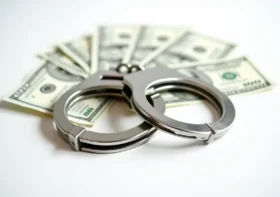What to Expect After a Second Offense DUI Charge

Driving under the influence (DUI) is a serious criminal charge, and getting arrested for a second time significantly raises the stakes.
While a first offense might lead to leniency in some jurisdictions, a second offense DUI is generally viewed as a pattern of behavior rather than a one-time mistake. As a result, courts, prosecutors, and state agencies treat second-time offenders much more harshly.
The laws surrounding DUI vary by state, but most jurisdictions impose mandatory penalties, including longer license suspensions, higher fines, extended jail time, and stricter monitoring. Additionally, the long-term consequences can ripple through every area of your life—from employment and education to insurance costs and family relationships.
Understanding what to expect can help you prepare and take steps to mitigate the impact of the charges. Seeking qualified legal representation is crucial to navigating this challenging situation and protecting your rights.
Contents
Immediate Legal and Administrative Consequences
Arrest and Booking
If you’re arrested for a second DUI offense, the experience is typically more severe than the first. Law enforcement will likely conduct sobriety tests, request a chemical test (such as a breath or blood test), and process you through the local jail. Depending on your blood alcohol concentration (BAC), behavior during the arrest, and whether there was an accident or injury, you may face enhanced charges.
After booking, you may be required to stay in jail until your arraignment or until bail is posted. In some states, mandatory minimum jail time applies immediately after a second offense, especially if it occurred within five to ten years of the first conviction.
Driver’s License Suspension
Most states have strict administrative penalties triggered automatically by a second DUI arrest. You could face an immediate license suspension from the Department of Motor Vehicles (DMV) or equivalent agency, even before your court date. This is separate from any suspension that may be imposed later by a judge if you’re convicted.
The suspension period for a second DUI can range from one to two years or more, depending on the jurisdiction and specific circumstances. Some states may offer restricted driving privileges after a certain period, but only if you install an ignition interlock device (IID) on your vehicle and meet other strict conditions.
Court Proceedings and Sentencing
Arraignment and Plea
Your first court appearance will be the arraignment, where you’ll be formally charged and asked to enter a plea—usually guilty, not guilty, or no contest. It’s important not to underestimate the seriousness of this step. What happens here can influence how the rest of your case unfolds.
Hiring a defense attorney early in the process can help you understand your options and begin negotiations with the prosecution. A good attorney may be able to negotiate reduced charges or alternative sentencing options based on the specifics of your case and your prior history.
Sentencing and Mandatory Penalties
If you’re convicted or plead guilty to a second offense DUI, you will face harsher penalties than you did for the first offense. These may include extended jail time—ranging from a few days to several months—depending on the state, the time elapsed between offenses, and any aggravating factors like high BAC or accidents.
Fines can be substantial, often reaching thousands of dollars when court costs and mandatory assessments are included. Probation is also common, with terms that may require regular check-ins, alcohol education classes, community service, and abstaining from alcohol use entirely.
Courts often impose mandatory installation of ignition interlock devices for a year or more, requiring you to pass a breath test before starting your car. You may also be ordered to attend DUI school, substance abuse counseling, or a treatment program as a condition of probation or license reinstatement.
Long-Term Personal and Professional Impact
A second DUI conviction goes beyond fines and jail. It becomes part of your permanent criminal record, which can have far-reaching effects. Many employers conduct background checks, and a DUI can jeopardize current employment or make future job searches more difficult—especially in fields that require driving, security clearance, or professional licensing.
You may also experience significant increases in auto insurance premiums, or in some cases, your insurer may refuse to renew your policy altogether. These financial burdens can make it even more difficult to recover after the legal process is over.
Socially, a second DUI can strain relationships with family, friends, and community members. You may face judgment or disappointment, and if you’re involved in a custody dispute or family law matter, the conviction could be used against you in court.
Seeking Legal Guidance and Taking Responsibility
When facing a second DUI charge, one of the most important steps you can take is hiring an experienced DUI defense attorney. Legal professionals can review the evidence against you, challenge the validity of the traffic stop or chemical tests, and help you explore defenses that may apply.
In some cases, you may be eligible for diversion programs, alternative sentencing, or reduced charges. These outcomes are more likely when you’re proactive about addressing the underlying issues—such as attending voluntary treatment or demonstrating a commitment to behavioral change.
Taking full responsibility and showing the court that you’re serious about rehabilitation can influence sentencing and future opportunities. Courts may show more leniency if you can demonstrate a genuine desire to change your behavior and prevent future offenses.
Conclusion
A second offense DUI is a serious legal matter with consequences that extend far beyond the courtroom. From stricter sentencing and longer license suspensions to a lasting criminal record and personal challenges, the impact can be both immediate and long-term.
However, facing a second DUI charge doesn’t mean your life is over. With the help of a skilled attorney and a commitment to change, it is possible to manage the consequences and rebuild your future. Understanding what lies ahead is the first step in preparing for the legal process and taking back control of your life.



